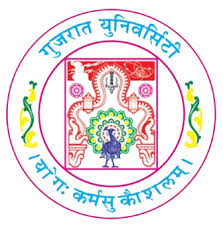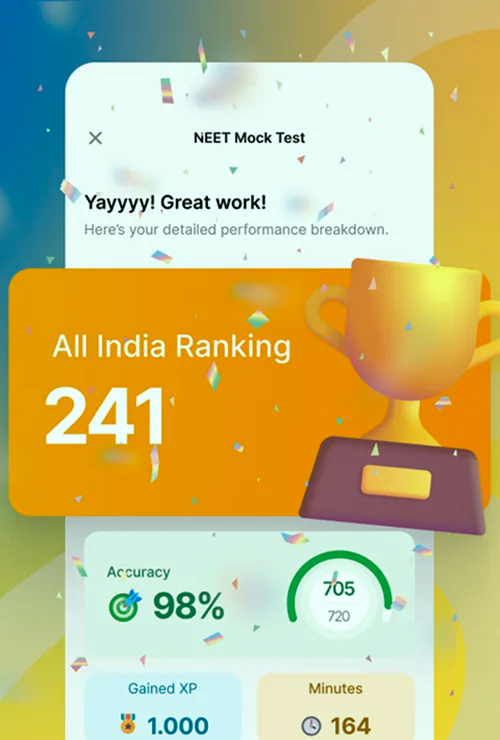General Information
Gujarat University, established in 1949, is a major public State University located in Ahmedabad, Gujarat. It holds a significant historical position in the state's educational development.
As a large, traditional university, it functions as a teaching-cum-affiliating institution. It has numerous postgraduate departments and schools on its main campus, offering a wide array of courses. It also serves as the affiliating university for a vast number of colleges (over 300) in Ahmedabad, Gandhinagar, and surrounding districts, though its jurisdiction has reduced as new universities (like GTU, CUG, and SGGU) were established. It remains a central hub for Arts, Science, Commerce, Law, and Education streams in the region.
Key Recognitions:
Established by a State Act and recognized by the University Grants Commission (UGC).
Holds approvals from relevant professional bodies like AICTE, NCTE, BCI, and NMC for specific programs offered through its affiliated colleges.
Its NAAC accreditation status reflects its quality standards (check the latest grade, as it has held high grades like 'B++' in the past).
Features in NIRF rankings, often in the 101-150 band for Universities.
MCI Recogination
Recognized for 150 seats. Permitted for renewal of permission for increase of seats from 150 to 250 u/s 10(A) for 2020-21. Annual renewal permission granted for 250 MBBS seats for AY 2024-25.
Campus Facilities
The Campus: A Sprawling Green Campus in the City
Gujarat University's main campus is a prominent green space within Ahmedabad.
Location: Situated in the Navrangpura area of Ahmedabad, Gujarat.
Campus Vibe: The campus is vast (often cited around 200+ acres), known for its extensive greenery, mature trees, and iconic buildings. It has a traditional, established university atmosphere, serving as an academic and administrative hub for thousands of students.
Infrastructure & Facilities:
Academic Departments: Numerous buildings house its various Schools and Postgraduate Departments (e.g., School of Sciences, School of Commerce, School of Languages, School of Social Sciences).
Central Library: A large university library with a massive collection of books, journals, theses, manuscripts, and digital resources.
Laboratories: Equipped labs for all science departments (Physics, Chemistry, Life Sciences, Computer Science, etc.) on campus.
Affiliated Institutes: The campus also hosts specialized centers like the Educational Multimedia Research Centre (EMRC).
Residential Life: Extensive and separate hostel facilities for boys and girls.
Amenities: Administrative offices, Health Centre, bank/ATMs, post office, canteens, guest house, and an Olympic-standard sports complex.
Startup & Research: The university is known for its "Gujarat University Startup and Entrepreneurship Council" (GUSEC), a significant startup incubator, and a Research Park.
Hospital & Medical Facilities
Leading tertiary care hospital attached to the institution
Healthcare Connection: Affiliating Role Only
It is important to clarify Gujarat University's role in medical education, which is purely affiliating.
No Constituent Medical College: Gujarat University does not have its own constituent Medical College offering the MBBS degree, nor does it operate its own large general teaching hospital for this purpose.
Affiliation Role: The university acts as the affiliating university for prominent government and municipal medical colleges in its jurisdiction. This includes:
Medical: B. J. Medical College (BJMC) Ahmedabad, Smt. N.H.L. Municipal Medical College (Ahmedabad), AMC MET Medical College (Ahmedabad).
Dental: Government Dental College & Hospital, Ahmedabad.
Note: While these colleges are affiliated with Gujarat University for degree-awarding purposes, their admissions (based on NEET) are managed centrally by the state's admission committee (ACPUGMEC).
Health-Related Programs (On Campus): The university's own campus offers strong programs in Sciences (Biochemistry, Microbiology, Biotechnology, Forensic Science, Human Genetics) but not direct clinical (MBBS/BDS) training.
Health Centre: Provides basic medical support to the campus community.
Fee Structure
State University Affordability
Fee Structure: State University Affordability
Being a state university, Gujarat University's fees for its regular, government-aided programs on campus are extremely affordable. Self-financed courses (like M.Sc IT, Data Science, MBA) have higher fees but are still generally competitive.
City Details
Hostel & Mess
Campus Living: Highly Affordable Hostel Accommodation
Gujarat University provides residential facilities, primarily for students enrolled in its on-campus (mostly PG) programs.
Availability: Yes, the university has separate hostel blocks (6 for boys, 2 for girls) on its main campus, with a combined capacity of ~740+ students. Allotment is based on merit, category, and distance.
Facilities: Hostels offer basic furnished accommodation (single and double sharing rooms), common rooms, dining halls (messes), 24/7 security, warden supervision, and essential amenities like water coolers.
Mess System: Each hostel typically operates its own mess, providing regular meals.
Cost: As a state university, the hostel and mess fees are extremely economical. Expect annual hostel fees (rent, electricity, etc.) to be very low (e.g., ~₹4,000 - ₹10,000 per year). Mess charges are separate (paid monthly). Total annual cost (Hostel + Mess) is likely in the ₹40,000 - ₹84,000 range.
Miscellaneous
Admissions & Career Pathways: State Portals (GCAS, ACPC) & Diverse Outcomes
Getting Admitted:
UG (BA/BSc/BCom etc. in Affiliated Colleges): Admission to most general UG courses in colleges affiliated with Gujarat University is managed through the Gujarat Common Admission Services (GCAS) portal, a centralized, merit-based process based on Class 12 marks.
PG (MA/MSc/MCom on Campus): Admission to most on-campus postgraduate programs is also typically managed via the GCAS portal, based on merit in the qualifying Bachelor's degree. (Some departments may have their own entrance tests).
MBBS / BDS (Affiliated): Admission is strictly based on rank in NEET-UG. Seat allotment for all quotas (Govt, Mgmt, NRI) is handled by the Admission Committee for Professional Undergraduate Medical Educational Courses (ACPUGMEC), Gujarat.
B.Tech (Affiliated): Admission to affiliated engineering colleges is based on JEE (Main) scores and/or GUJCET (Gujarat Common Entrance Test), followed by ACPC (Admission Committee for Professional Courses) counselling.
MBA (B.K. School): Admission is based on CMAT scores, followed by centralized counselling (ACPC) or university-level selection.
LLB: Admission is often based on the Gujarat LLB Entrance Exam (GLAET) or merit.
Always check the official Gujarat University admission notifications and the relevant Gujarat state admission portals (GCAS, ACPC, ACPUGMEC).
Career Support (Placements):
Focus: Gujarat University has a placement cell, and individual departments (like B.K. School of Management) have very active placement efforts. For the large number of general stream graduates, career paths often lead towards state government jobs (GPSC, Banking), teaching positions (B.Ed/NET/SET), competitive exams (UPSC), entrepreneurship (leveraging the GUSEC incubator), or further studies (CA/CS).
Campus Placements: Direct campus placements are strong for professional courses like MBA, MCA, and specialized M.Sc programs (IT, Data Science, Biotech).
Recruiters: Attracts a mix of IT companies (TCS, Infosys), banks (HDFC, ICICI), financial services firms, pharmaceutical companies, and major Gujarat-based corporations.
Outcomes: Placement success varies. The median package for PG (2-year) programs (like MBA/MSc) was reported around ₹7 LPA in NIRF 2023. The university's strength lies in its strong academic foundation, extensive alumni network, and affordable education in a major economic hub.
Information for NRI / Foreign Nationals
Provisions for NRI/Foreign Nationals exist, primarily through affiliated private/government colleges and specific university policies.
Collage Images Gallery
Facilities & Campus Life
Well-equipped Library
Experienced Faculty
Computer Lab
Sports Activities
Heritage Campus
Frequently Asked Questions
Why Consult With Us?
- 15+ years of experience in medical education counseling
- 5000+ students successfully guided
- 50+ partner universities worldwide
- Free initial consultation with no obligation














